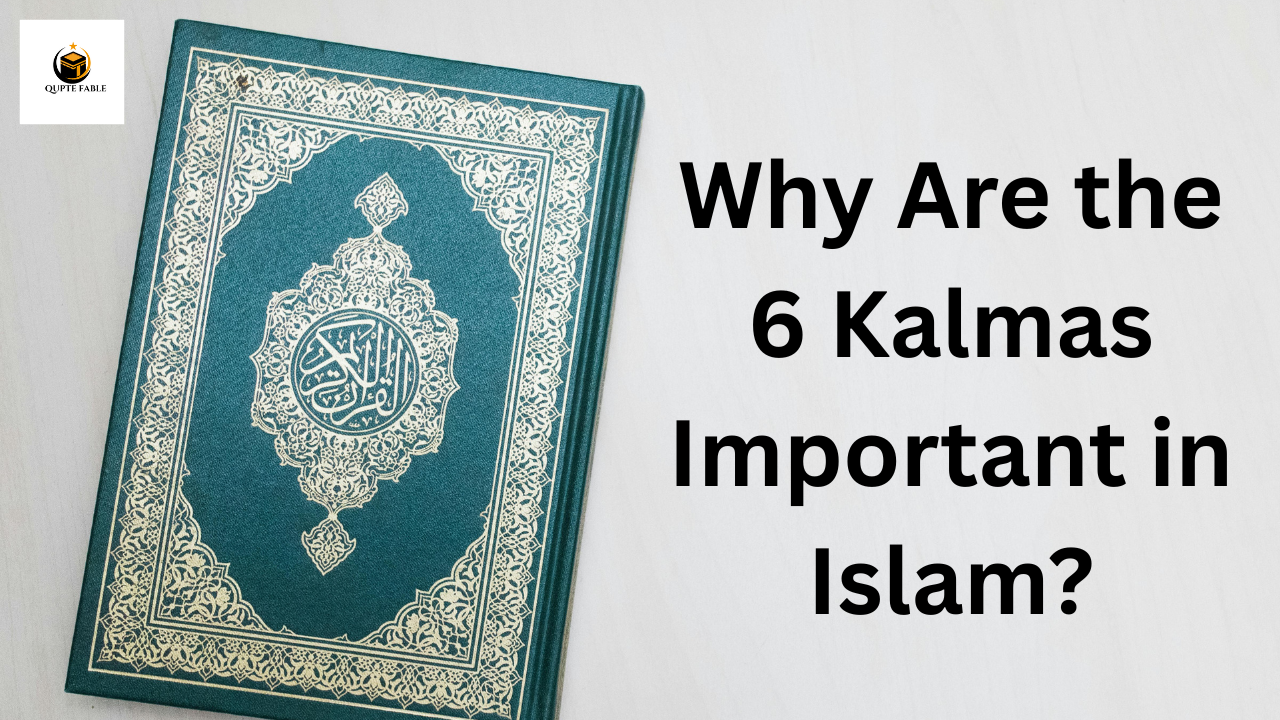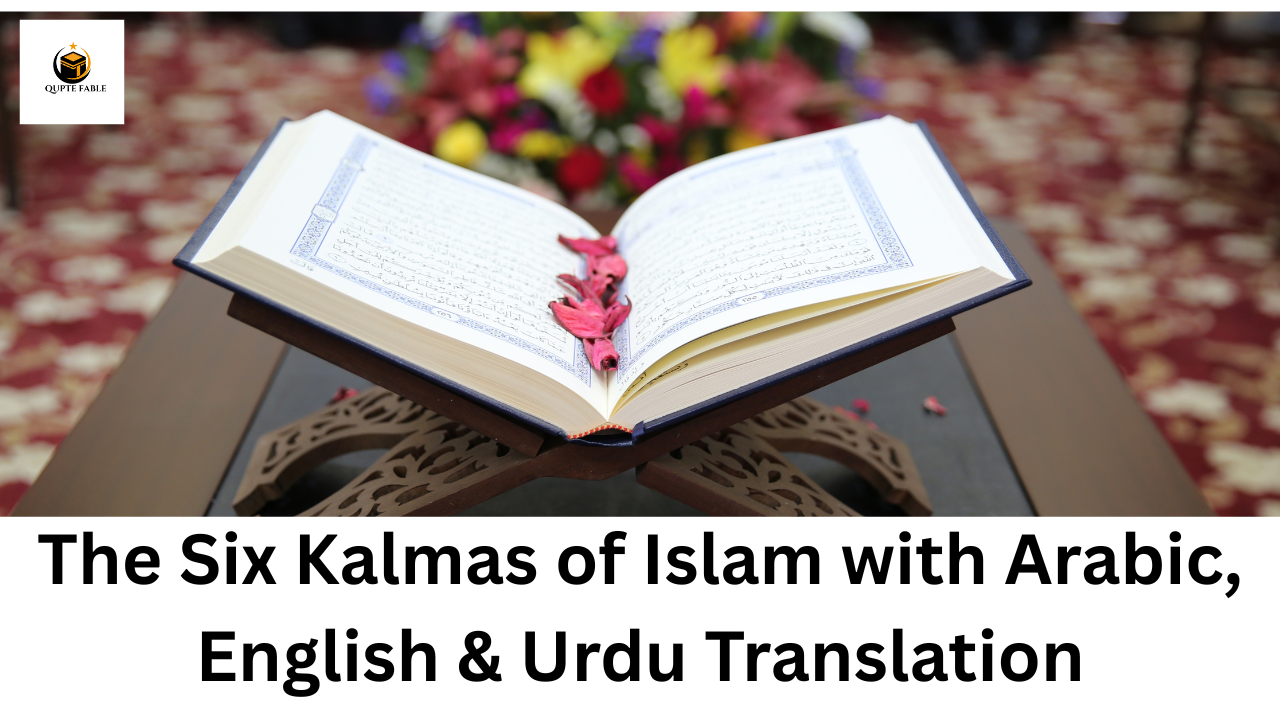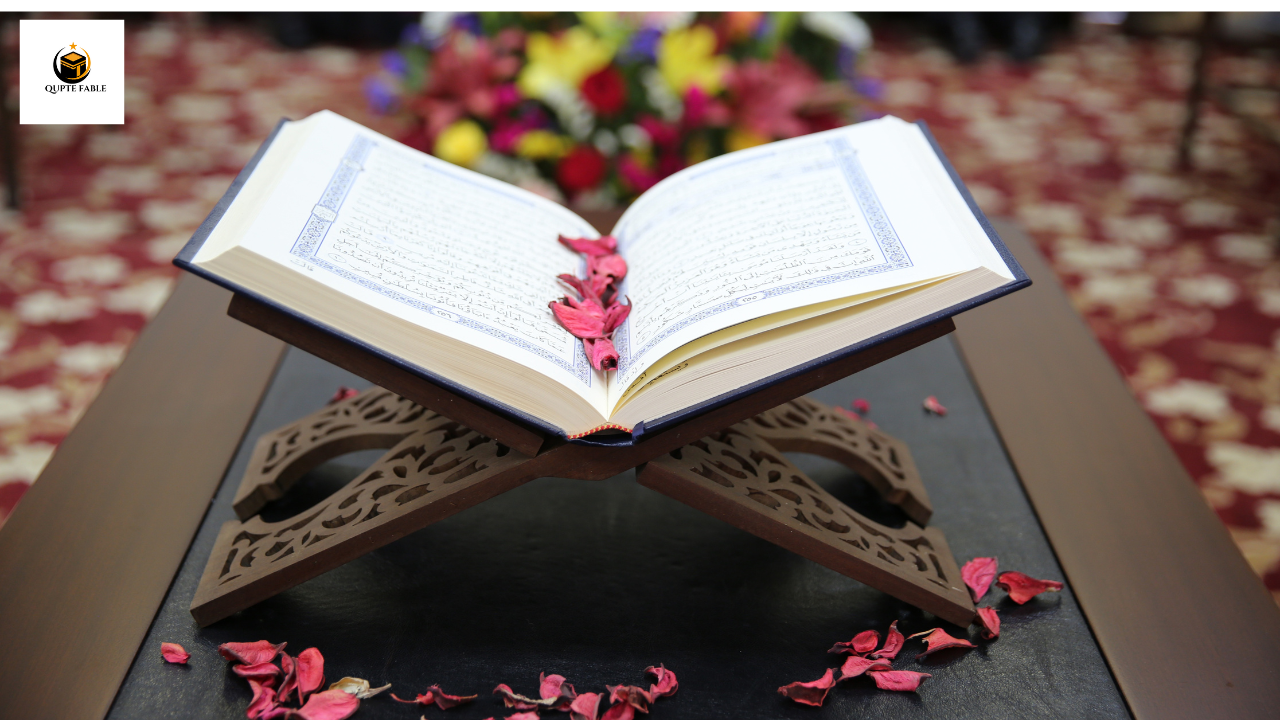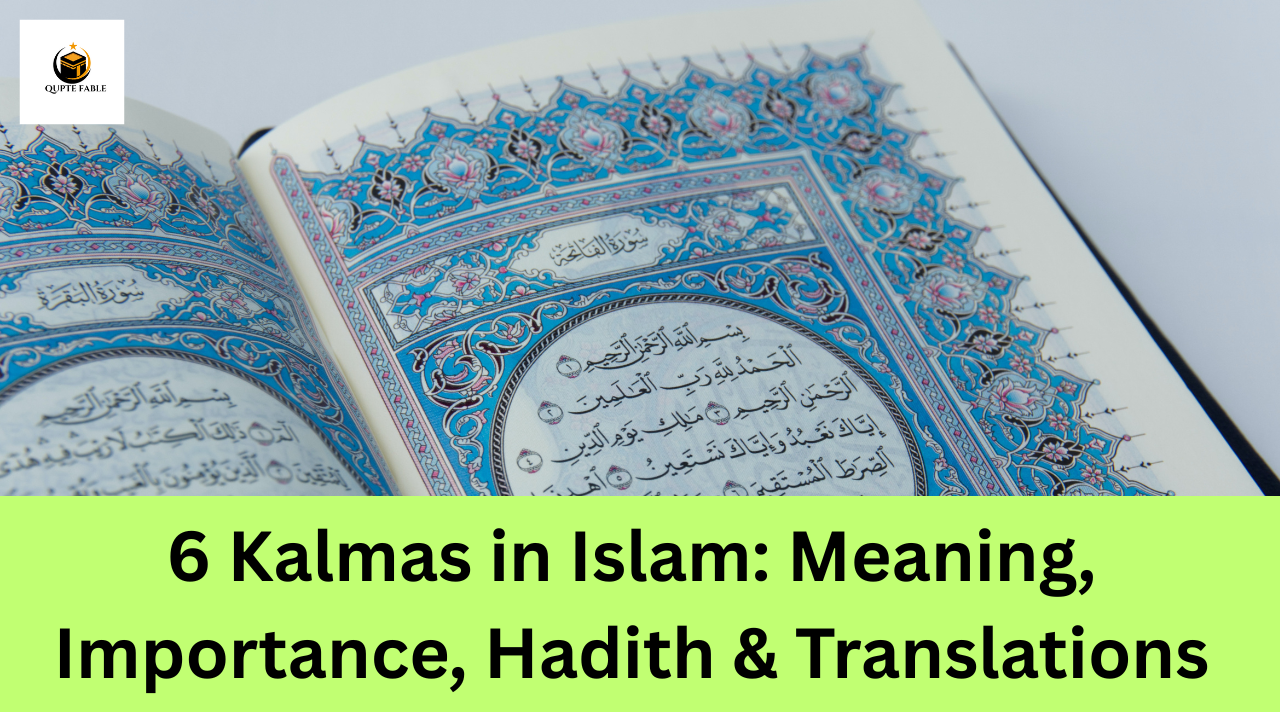Islam is a religion built on faith, belief, and submission to the will of Allah (SWT). Among the most significant spiritual practices for Muslims are the 6 Kalmas of Islam, which serve as reminders of the Oneness of Allah, the message of the Prophet Muhammad ﷺ, and the importance of repentance and purity of heart. From childhood, Muslims across the world are encouraged to learn, memorise, and understand these Kalmas as part of their spiritual foundation.
The Kalmas are more than mere words. They represent the core beliefs that connect a Muslim to his Creator, and they are derived from authentic Quranic verses and Hadiths. Each Kalma carries a unique lesson – from declaring Tawheed (Oneness of Allah) to seeking forgiveness, glorifying Allah, and rejecting falsehood and disbelief. Learning these Kalmas is like holding a key to strengthening one’s Iman (faith) and building a lifelong spiritual connection with Allah (SWT).

Why Are the 6 Kalmas Important in Islam?
The 6 Kalmas are considered a summary of faith and a guide for Muslims in their everyday lives. Each Kalma holds a special purpose:
- The First Kalma (Tayyab) affirms belief in the Oneness of Allah and the finality of the Prophethood.
- The Second Kalma (Shahadat) is a declaration of faith – a testimony required to embrace Islam.
- The Third Kalma (Tamjeed) focuses on glorifying and praising Allah.
- The Fourth Kalma (Tauheed) reaffirms the complete oneness and eternal power of Allah.
- The Fifth Kalma (Astaghfar) emphasises repentance and turning back to Allah after sin.
- The Sixth Kalma (Radd-e-Kufr) rejects disbelief, shirk, and sins, reaffirming loyalty to Allah and Islam.
Connection with Quran and Sunnah
Although the six Kalmas as a set were compiled by scholars for ease of memorisation and teaching, their essence and wordings are found in the Quran and the Hadith. For instance, the First Kalma reflects the Quranic declaration:
“There is no deity except Allah, and Muhammad is the Messenger of Allah.”
(Quran 48:29)
Similarly, Prophet Muhammad ﷺ emphasised the power of La ilaha illallah (First Kalma):
“The best remembrance is La ilaha illallah (There is no god but Allah).”
— Tirmidhi, Hadith 3383
This Hadith alone shows that reciting, remembering, and living by the words of the Kalmas holds immense spiritual weight.
Hadiths on the Importance of Kalmas
The Prophet ﷺ repeatedly highlighted the power of these words in shaping a believer’s heart and soul:
- About Tawheed:
“Whoever says ‘La ilaha illallah’ sincerely will enter Paradise.”
— Sahih al-Bukhari, 5827
- About Testimony of Faith:
“Islam is built on five pillars: testifying that there is no god but Allah and Muhammad is the Messenger of Allah…”
— Sahih Muslim, 16
- About Seeking Forgiveness (Astaghfar):
“By Allah, I seek forgiveness from Allah and turn to Him in repentance more than seventy times a day.”
— Sahih al-Bukhari, 6307
These Hadiths highlight the essence of what the 6 Kalmas represent: faith, glorification of Allah, repentance, and rejection of disbelief.

The Six Kalmas of Islam with Arabic, English & Urdu Translation
Below are the complete texts of the 6 Kalmas, along with detailed translations and explanations.
1. First Kalma – Tayyab (Purity)
Arabic:
لَا إِلٰهَ إِلَّا اللَّهُ مُحَمَّدٌ رَسُوْلُ اللَّهِ
English Translation:
There is no God but Allah; Muhammad (peace be upon him) is the Messenger of Allah.
Urdu Translation:
اللّٰہ کے سوا کوئی معبود نہیں، محمد ﷺ اللّٰہ کے رسول ہیں۔
Explanation:
This Kalma is the foundation of Islam. It declares the oneness of Allah and the finality of prophethood. Every Muslim begins thei faith with this statement.
2. Second Kalma – Shahadat (Testimony)
Arabic:
أَشْهَدُ أَنْ لَا إِلٰهَ إِلَّا اللَّهُ وَحْدَهُ لَا شَرِيكَ لَهُ وَأَشْهَدُ أَنَّ مُحَمَّدًا عَبْدُهُ وَرَسُوْلُهُ
English Translation:
I bear witness that none is worthy of worship except Allah. He is One, without partner, and I bear witness that Muhammad is His servant and messenger.
Urdu Translation:
میں گواہی دیتا ہوں کہ اللہ کے سوا کوئی معبود نہیں، وہ اکیلا ہے، اس کا کوئی شریک نہیں، اور میں گواہی دیتا ہوں کہ محمد ﷺ اس کے بندے اور رسول ہیں۔
Explanation:
This Kalma is the official declaration of becoming Muslim. Anyone who sincerely recites this Kalma enters into the fold of Islam.

3. Third Kalma – Tamjeed (Glorification)
Arabic:
سُبْحَانَ اللَّهِ وَالْحَمْدُ لِلَّهِ وَلَا إِلٰهَ إِلَّا اللَّهُ وَاللَّهُ أَكْبَرُ وَلَا حَوْلَ وَلَا قُوَّةَ إِلَّا بِاللَّهِ الْعَلِيِّ الْعَظِيمِ
English Translation:
Glory be to Allah; all praise is for Allah; there is no god but Allah; Allah is the Greatest. There is no power nor might except with Allah, the Exalted, the Great.
Urdu Translation:
اللہ پاک ہے، سب تعریفیں اللہ کے لئے ہیں، اللہ کے سوا کوئی معبود نہیں، اللہ سب سے بڑا ہے اور کوئی طاقت یا قوت نہیں مگر اللہ بلند و برتر کے ساتھ۔
Explanation:
This Kalma is a reminder of gratitude, humility, and submission to Allah’s greatness. It strengthens the habit of remembering Allah daily.
4. Fourth Kalma – Tauheed (Oneness of Allah)
Arabic:
لَا إِلٰهَ إِلَّا اللَّهُ وَحْدَهُ لَا شَرِيكَ لَهُ، لَهُ الْمُلْكُ وَلَهُ الْحَمْدُ، يُحْيِي وَيُمِيتُ، وَهُوَ حَيٌّ لَا يَمُوتُ أَبَدًا، ذُو الْجَلَالِ وَالْإِكْرَامِ، بِيَدِهِ الْخَيْرُ وَهُوَ عَلَى كُلِّ شَيْءٍ قَدِيرٌ
English Translation:
There is no god but Allah. He is One, without a partner. To Him belongs the Kingdom and praise. He gives life and causes death. He is Ever-Living and does not die. In His hand is all good, and He has power over everything.
Urdu Translation:
اللہ کے سوا کوئی معبود نہیں، وہ اکیلا ہے، اس کا کوئی شریک نہیں۔ بادشاہت اور حمد اسی کے لئے ہے، وہ زندہ کرتا ہے اور موت دیتا ہے، اور وہ ہمیشہ زندہ ہے، وہ نہیں مرتا۔ بزرگی اور عزت والا ہے، اسی کے ہاتھ میں بھلائی ہے اور وہ ہر چیز پر قادر ہے۔
Explanation:
This Kalma emphasises Allah’s absolute control over life, death, and all creation. It teaches Muslims to rely fully on Allah.
5. Fifth Kalma – Astaghfar (Repentance)
Arabic:
أَسْتَغْفِرُ اللَّهَ رَبِّي مِنْ كُلِّ ذَنْبٍ أَذْنَبْتُهُ عَمْدًا أَوْ خَطَأً سِرًّا أَوْ عَلَانِيَةً …
English Translation:
I seek forgiveness from Allah, my Lord, for every sin committed knowingly or unknowingly, secretly or openly. I repent for sins I know and those I do not know. Indeed, You are the Concealer of faults and Forgiver of sins.
Urdu Translation:
میں اللہ اپنے رب سے ہر گناہ کی بخشش مانگتا ہوں جو میں نے جان بوجھ کر یا بھول کر، چھپ کر یا ظاہر ہوکر کیا۔ میں ان گناہوں سے توبہ کرتا ہوں جو مجھے معلوم ہیں اور جو مجھے معلوم نہیں۔ بے شک تو عیبوں کو چھپانے والا اور گناہوں کو بخشنے والا ہے۔
Explanation:
This Kalma shows humility and the need for forgiveness. Every human errs, but Islam teaches turning back to Allah in repentance.
6. Sixth Kalma – Radd-e-Kufr (Rejecting Disbelief)
Arabic:
اللَّهُمَّ إِنِّي أَعُوذُ بِكَ مِنْ أَنْ أُشْرِكَ بِكَ شَيْئًا …
English Translation:
O Allah, I seek refuge in You from associating anything with You knowingly. I repent, rejecting disbelief, polytheism, lies, backbiting, slander, obscenity, falsehood, and all sins. I accept Islam and declare that there is no god but Allah; Muhammad is the Messenger of Allah.
Urdu Translation:
اے اللہ! میں تیری پناہ مانگتا ہوں کہ میں جان بوجھ کر تیرے ساتھ کسی کو شریک نہ ٹھہراؤں۔ میں توبہ کرتا ہوں اور کفر، شرک، جھوٹ، غیبت، بدعت، چغلی اور سب گناہوں سے بیزاری اختیار کرتا ہوں۔ میں اسلام قبول کرتا ہوں اور اعلان کرتا ہوں کہ اللہ کے سوا کوئی معبود نہیں اور محمد ﷺ اللہ کے رسول ہیں۔
Explanation:
This Kalma teaches Muslims to reject all forms of disbelief, shirk, and sins, reaffirming their loyalty to Allah and Islam.
Benefits of Reciting the 6 Kalmas
- Strengthens Iman – Constantly reminds Muslims of their faith.
- Protection from Shirk – Keeps the heart safe from associating partners with Allah.
- Path to Forgiveness – Astaghfar (5th Kalma) is a direct way of seeking Allah’s mercy.
- Peace of Mind – Brings inner calm through remembrance of Allah.
- Reward in Hereafter – Prophet ﷺ promised Paradise for those who live and die on La ilaha illallah.
Conclusion
The 6 Kalmas of Islam are not just memorised sentences but spiritual lifelines for Muslims. They remind us of the Oneness of Allah, the Prophethood of Muhammad ﷺ, and the importance of repentance, glorification, and rejection of disbelief. Learning and reciting them is a way to keep the heart alive with faith. As the Prophet ﷺ said, “Renew your faith.” When asked how, he replied, “Say La ilaha illallah often.” (Musnad Ahmad, 2/359).
Thus, every Muslim should not only memorise these Kalmas but also understand their meanings and live by them daily. They are a spiritual shield, a guide to righteousness, and a light for success in this world and the hereafter.
Please read the related post: The Powerful Smile Quotes, from Islam, and the famous speakers.

